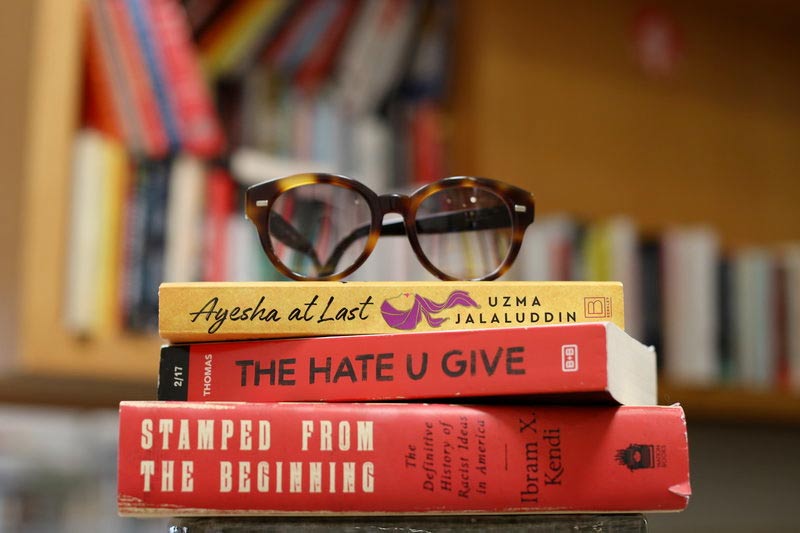 VIEW LARGER A few of the great books that our listeners recommend for summer reading.
VIEW LARGER A few of the great books that our listeners recommend for summer reading. A little road map: We've listed nonfiction first, in alphabetical order, with the person who suggested the book at the end of the suggestion in parentheses.
Then fiction, in the same order. If you see initials only, the suggestion came from someone on the Code Switch team. Some books have been reviewed by NPR, and some of the authors have been written about; clicking on the link will take you there. Happy reading!
Nonfiction:
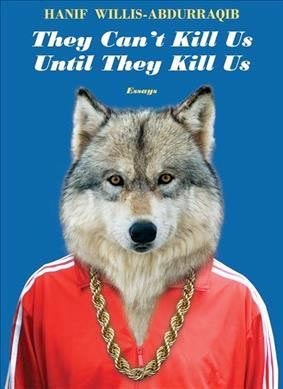 VIEW LARGER They Can't Kill Us Until They Kill Us by Hanif Willis-Abdurraqib
VIEW LARGER They Can't Kill Us Until They Kill Us by Hanif Willis-Abdurraqib
A collection of essays that speak to Willis-Abdurraqib's experiences navigating the intersections between race, culture, music and growing up black in America. The book analyzes and critiques the racial and cultural norms dominating modern society. (MP)
The Lies That Bind: Rethinking Identity by Kwame Anthony Appiah
A scholarly, philosophical exploration of identity written in an accessible style. Appiah argues that the terms we use to define ourselves are based in myths, which can obscure connections to identities that we hide. He affirms the importance of identity in fostering a sense of belonging, but suggests that we strive to embrace a broader view of ourselves. (Martha Viehmann)
The World According To Fannie Davis: My Mother's Life in the Detroit Numbers by Bridgett M. Davis
Davis' memoir is a tribute to the smarts and determination of her mother, Fannie. Fannie gave her children a stable, middle-class life in segregated 1960s Detroit. She knew that menial work at the city's auto factories wouldn't cut it, nor would being a housekeeper for some rich family. Instead, Fannie struck out on her own and used her love of math to become one of the top people in Detroit's (illegal) numbers business — the only woman at that level. Bridgett Davis recounts how, in an effort to "make a way out of no way," her mother's ingenuity and generosity went beyond her family, and benefited her entire community. (KGB)
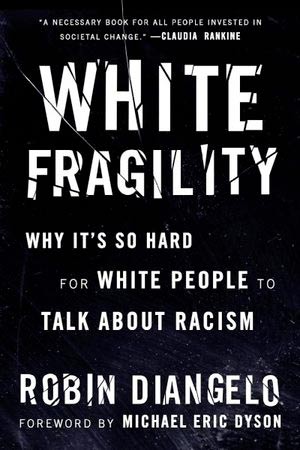 VIEW LARGER White Fragility
Why It's So Hard for White People to Talk About Racism
by Robin Diangelo and Michael Eric Dyson
VIEW LARGER White Fragility
Why It's So Hard for White People to Talk About Racism
by Robin Diangelo and Michael Eric Dyson
White Fragility: Why It's So Hard for White People to Talk About Racism by Robin DiAngelo (forward by Michael Eric Dyson)
I haven't finished it yet, but already I wish everyone could read this. It's validation and comfort for people of color who have tried to explain things to "white folks," and a challenge to "white folks" to acknowledge their privilege and fragility, and do something about it. Build some stamina, folks; this is a book that provides a framework for difficult discussions so that we (white people included) can acknowledge the past, recognize the issues of the present and move forward together. (Heather Cogdell)
Killers of the Flower Moon: The Osage Murders and the Birth of the FBI by David Grann
This nonfiction book reads like a novel and is impossible to put down. It tells the very important story (that we don't ever learn in history classes!) of the Osage tribe in Oklahoma. The tribe was systematically wiped out by local white townsfolk in a plot to get all of their inheritance and oil rights. At the time, the Osage were the wealthiest people in the world (Oklahoma's oil was just being discovered, and they held the headrights to the oil under their reservation), and yet the government still held control over their lives and resources. A must read for everyone! (Isabella Badia-Bellinger)
Knitting the Fog by Claudia D. Hernandez
A hybrid poetry-prose memoir that recounts Hernandez's experiences as a Guatemalan immigrant to Los Angeles. It comes out in July. This book also won Feminist Press' annual Louise Meriwether First Book Prize, which goes to a debut work by a woman/nonbinary writer of color. (Sophia Magnone)
Medical Bondage: Race, Gender, and the Origins of American Gynecology by Deirdre Cooper Owens
Since abortion and freedom of autonomy over our own bodies seems to be the only mobilizing factor for ~most~ white women, it's vital to remember that our knowledge of gynecology and women's reproductive organs was learned through the exploitation of black women, particularly enslaved black women via experimentation. Though it is a hefty read, it's so important to recognize and learn about these women who were violated without consent and went through unimaginable pain. When it comes to issues around reproductive justice and autonomy over our bodies, we must remember who is most affected. (Marissa Webb)
Stony The Road: Reconstruction, White Supremacy, and the Rise of Jim Crow by Henry Louis Gates Jr.
Stony the Road should be on the list because I'm tired of people acting like we live in a post-racial society. I'm tired of people saying black Americans are playing the "victim" card. Slavery, reconstruction, Jim Crow have had a negative impact on generations of Americans. Families are still dealing with the repercussions of racist policies. Jim Crow laws were in effect until 1965! People act as though the Civil Rights Act was signed and boom — we're all equal. This book is necessary for people who honestly believe equal opportunity, regardless of race, currently exists in this nation. Hopefully they can read this book and open their eyes to reality. (Lindsay Martin)
The Christian Imagination: Theology and the Origins of Race by Willie James Jennings
It is a little dense and niche, but profound and deeply intersectional. Jennings makes the case that the construction of race emerged at the same time as the idea of private property. He connects the dots between our dominant cultural disregard of the earth to indigenous languages and geography, and brings it all back to the Western Christian Church and the project of white supremacy. (Noah Kruis)
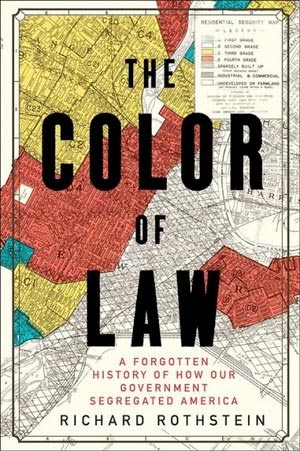 VIEW LARGER The Color of Law
A Forgotten History of How Our Government Segregated America
by Richard Rothstein
VIEW LARGER The Color of Law
A Forgotten History of How Our Government Segregated America
by Richard Rothstein
The Color of Law: A Forgotten History of How Our Government Segregated America by Richard Rothstein
I've been involved with equity work for 40 years, (yeah, old doesn't even describe me) and I still learned that stuff I thought was individual prejudice was actually law. I got plenty mad, and I don't ever get mad! (Ken Katzen)
The Dark Fantastic: Race and the Imagination from Harry Potter to the Hunger Games by Ebony Elizabeth Thomas
People are all feeling some kind of way about Game of Thrones, and Dr. Thomas does a deep dive into fandoms and how they treat people of color. (Tanita S. Davis)
Race, Riots, and Roller Coasters: The Struggle over Segregated Recreation in America by Virginia W. Wolcott
With the advent of summer and its accompanying entertainments, Wolcott's book is an excellent history of the deeply segregated nature of America's public amusements and spaces. This book fleshes out the history of the civil rights movement to understand how important ancillary local movements toward integration were in shifting the national conversation around segregation. Also, the sheer pettiness of segregation and the lengths that places like public pools and recreation halls went to keep black people out is staggering. Wolcott's history of recreation in America illuminates the nationwide spread of segregation in public spaces. This links to the present, looking at what it is to be black in public spaces today, from Starbucks to barbecue grilling to university libraries to dorm lounges. These events are a continuation of this history and are not isolated from it. (Jeremy McGinniss)
Stamped From The Beginning: The Definitive History of Racist Ideas in America by Ibram X. Kendi
This is the history of ideas that are so critical, and that most of us don't know. (Lynette Jacobs-Priebe)
What Doesn't Kill You Makes You Blacker: A Memoir in Essays by Damon Young
He speaks frankly about gentrification, playing basketball with white guys and why white people should never use the N-word. (Lynette Jacobs-Priebe)
Fiction:
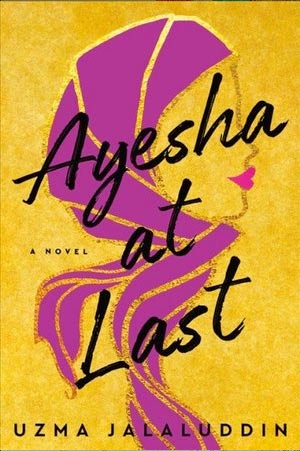 VIEW LARGER Ayesha at Last
by Uzma Jalaluddin
VIEW LARGER Ayesha at Last
by Uzma Jalaluddin
Ayesha at Last by by Uzma Jalaluddin
A retelling of the classic Pride and Prejudice, Ayesha At Last is set in modern Toronto's thriving Muslim community. Ayesha Shamsi is working as a substitute teacher as she pursues her real dream — spoken-word poetry — in the evenings. When she catches the eye of the rich boy across the street, sparks fly. They do not get along. At all. He thinks she's too opinionated and independent. She thinks he's too judgmental and rigid. This is a look at real, contemporary Muslim life from a Muslim point of view — eye-opening and wonderful. (KGB)
Future Home of the Living God by Louise Erdrich
A Native American author from Minneapolis, Erdrich paints a rich story of the downfall of society through widespread infertility, and ponders what her pregnancy means for the future of humanity. Given the battles around abortion across the United States, her writing is prescient and moving. (Nick Stumo-Langer)
Ghost Boys by Jewell Parker Rhodes
This YA novel explores the lives of black boys who die violently, linking Jerome, shot by a police officer, to fellow Chicagoan Emmett Till — a complex look at a challenging topic that Rhodes hopes will inspire conversation. (Martha Viehmann)
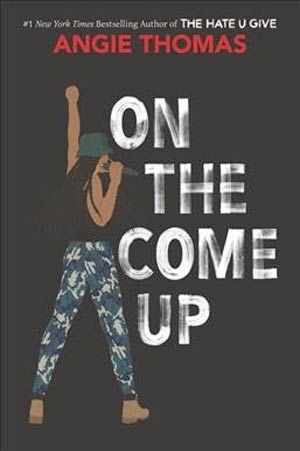 VIEW LARGER On the Come Up
by Angie Thomas
VIEW LARGER On the Come Up
by Angie Thomas
On The Come Up by Angie Thomas
Sequel to the bestselling YA novel The Hate U Give. (Ken Katzen)
The Nickel Boys by Colson Whitehead Publishes July 16, 2019
This story is very much a buried piece of Florida's history. I'm from Florida; we need to confront our history — the bad can no longer be hidden and swept under the rug. It's the only way we can move forward together as a society and get one step closer to equality. (Lindsay Martin)
No-No Boy by John Okada
Originally published in the 1950s, rediscovered in the 1970s and reprinted again recently, this novel is about the post-WWII Japanese immigrant community in Seattle. They struggled to rebuild lives after returning from internment camps, prison (where young men who replied "no" to enlisting in the U.S. Army were sent) and the war. Out of the brutal struggle against racism and anger, Okada finds hope. (Martha Viehmann)
Parable of the Sower by Octavia Butler
The protagonist is a young black woman who is trying to survive and make sense after her world in Southern California has devolved into a violent, hateful wasteland run by an authoritarian government. Climate change and a drug epidemic figure into the storyline — and this book was published in 1993! I highly recommend it. So much so that I'm about to start the sequel — Parable of the Talents. (SMM)
Pride by Ibi Zoboi
Another Pride and Prejudice interpretation, told through the lens of Zuri Benitez, a young Afro Latina who is watching her beloved part of Brooklyn gentrify with terrifying speed and who worries that a critical touchstone in her life will be lost. All this happens even as she falls in love for the first time with the rich boy who's moved into a renovated townhouse across the street. Zoboi combines issues of identity, gentrification, color prejudice and classism into a charming story adults will love too. (KGB)
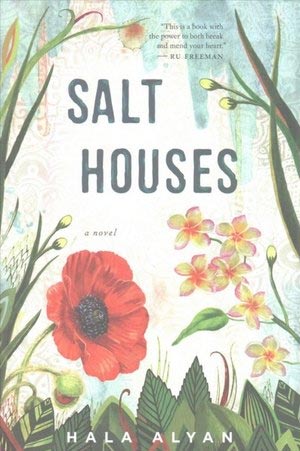 VIEW LARGER Salt Houses
by Hala Alyan
VIEW LARGER Salt Houses
by Hala Alyan
Salt Houses by Hala Alyan
An intergenerational tale of a Palestinian family as they are pushed around the Middle East and then Europe and the U.S. It's well-written and provides a good first-person account of the trauma faced by so many Palestinian families, being once, twice, three-times removed from their home. It gives good context for understanding the current diaspora of Palestinians. (Isabella Badia-Bellinger)
Stay with Me by Ayobani Adebayo
This is a novel set in contemporary Nigeria. Two bright young people meet and fall in love at university, marry soon after and expect the future to include professional success and children. But they have a problem conceiving, and after four years are under all kinds of pressure from their parents and extended families and from their clan to Do Something Immediately. Can't tell you more without tossing out spoilers, but I can tell you this: Adebayo has written a deeply thoughtful book about trying to hold on to yourself when the people around you insist that you become someone else. And FYI — the audio version, read by Ajojah Ando, is pretty great. (KGB)
This is Paradise by Kristiana Kahakauwila
Quick collection of short stories telling the non-tourist side of Hawaii. Great for summer reading for all the people vacationing in Hawaii — it's our responsibility to be educated on the culture, people and realities of the places we visit. This book is fun to read and a rewarding way to get a behind-the-scenes peek into real life in Hawaii, ups and downs included. (Isabella Badia-Bellinger)
Training School for Negro Girls by Camille Acker
It's her debut collection of short stories exploring the lives of women and girls in Washington, D.C. (Sophia Magnone)
Unmarriageable by Soniah Kamal
Another interpretation of Pride and Prejudice, this one set in modern Pakistan. Like Ayesha At Last, Unmarriageable looks at what happens when Alys Binat, an independent young woman, pushes back against the expectations of her family and society. Oh, and a Mr. Darsee is involved. Of course. (KGB, Ken Katzen)
Where the Line Bleeds by Jesmyn Ward
A beautiful, powerful look into life in the rural Deep South. This story of twin brothers coming of age shows just how easy it is to get swept up into a dangerous lifestyle, and how even when you "succeed," there are still so many obstacles blocking your chance of escaping incarceration, poverty and violence. (Isabella Badia-Bellinger)

By submitting your comments, you hereby give AZPM the right to post your comments and potentially use them in any other form of media operated by this institution.